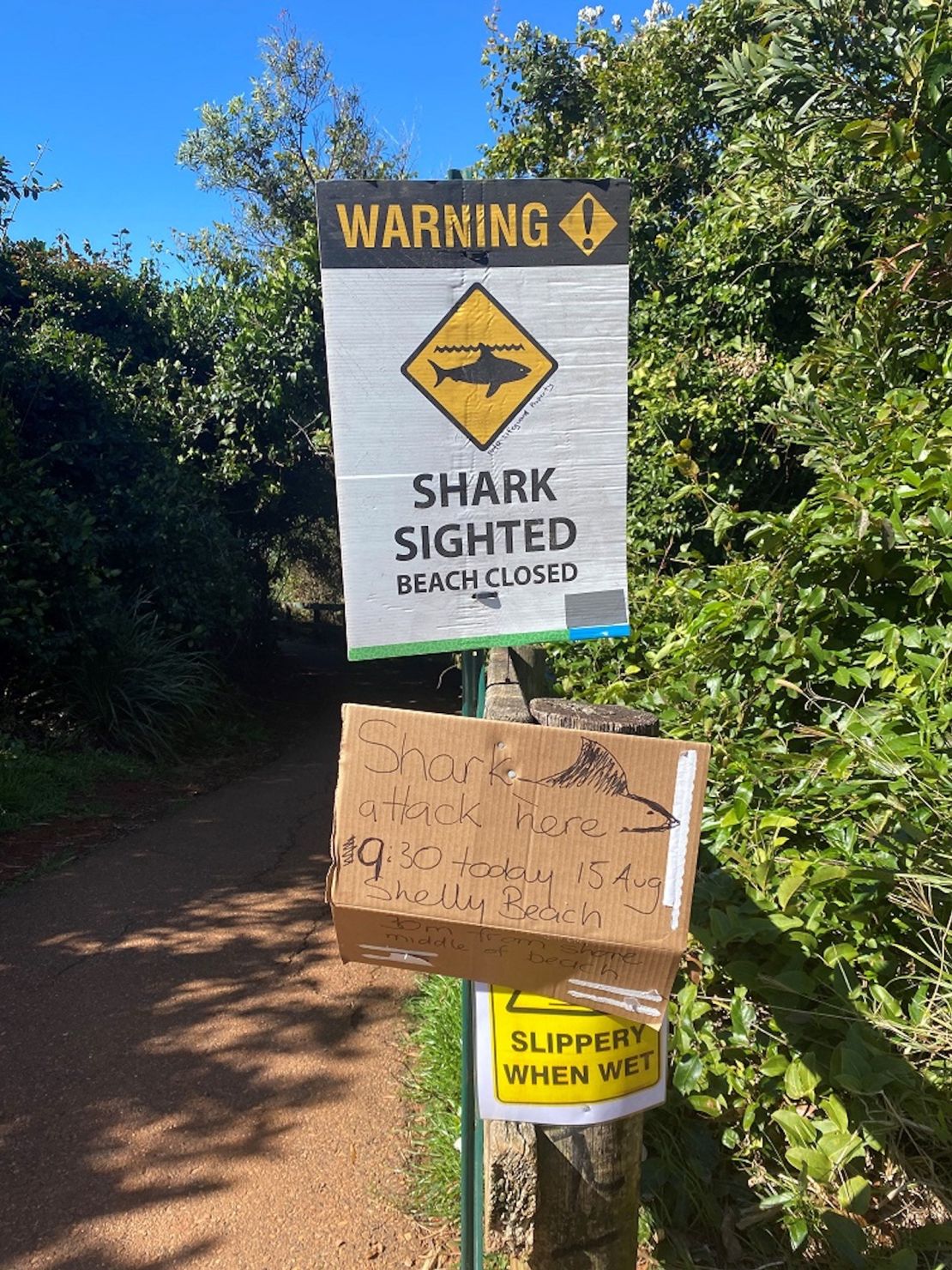An Australian surfer repeatedly punched a great white shark to save his female companion who was being attacked by the animal in New South Wales state on Saturday.
The woman, 35, had been surfing at Shelley Beach, in Port Macquarie, in the morning when the attack occurred, according to NSW Police. The shark bit her on the right calf, then on the back of her thigh.
The shark has since been identified as a juvenile great white, measuring about two to three meters (about 6.5 to 9.8 feet) in length, according to Surf Life Saving NSW, the lifeguard group which responded to the attack.
The male surfer punched the shark repeatedly until it released the woman’s leg. He then helped her out of the water and up to the beach, where an ambulance and emergency personnel were waiting, said Surf Life Saving NSW in a statement.
Paramedics treated her injuries at the scene, then airlifted her to the hospital for surgery. She is in a serious but stable condition.
“Our thoughts are with the young lady who was injured in the shark attack this morning. And we’d like to praise her fellow surfers who came to her aid so quickly,” said Steven Pearce, CEO of Surf Life Saving NSW, in the statement.
“Our lifesavers and lifeguards moved quickly to close beaches in the area and are now working closely with the NSW Department of Primary Industries to monitor the area to ensure there are no longer sharks in the vicinity.”

All beaches in the nearby area will be closed for at least 24 hours. Surf Life Saving NSW and other local authorities are conducting coastal surveillance, using drones, jetskis and inflatable rescue boats to try to spot the shark.
“The bystanders on scene that rendered assistance should be commended,” said Inspector Andrew Beverley of the NSW Ambulance, according to CNN affiliate Nine News. “They did an amazing job before we arrived.”
This is the third serious shark attack on the north coast in recent months, Beverley said.
This summer has seen a string of shark attacks across Australia. In June, a surfer died after being bitten by a great white shark on the far north coast of New South Wales. And July alone saw three shark attacks: a 15-year-old boy died while surfing in New South Wales, a 10-year-old boy was hospitalized after a shark dragged him from a boat off the coast of Tasmania, and a man died in the state of Queensland after being bitten while spearfishing.
In April, a Queensland wildlife ranger was killed by a great white, and in January a 57-year-old diver died from a shark attack in Western Australia state.
It’s a higher spike of incidences than seen in recent years; Australia saw no deaths from shark attacks in 2019 and just one in 2018, according to Sydney’s Taronga Zoo.







